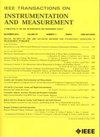DFKD:用于绝缘体缺陷检测的动态聚焦知识蒸馏法
IF 5.6
2区 工程技术
Q1 ENGINEERING, ELECTRICAL & ELECTRONIC
IEEE Transactions on Instrumentation and Measurement
Pub Date : 2024-10-23
DOI:10.1109/TIM.2024.3485446
引用次数: 0
摘要
虽然这些方法(如轻量级结构设计、模型剪枝(MP)和模型量化)可以降低深度学习模型在绝缘体缺陷(ID)检测中的部署难度,但却大大降低了检测精度。针对上述问题,本文提出了一种动态聚焦知识提炼(DFKD)方法,以构建从大模型到轻量级小模型的知识转移路径。首先,重要样本聚焦机制引入双聚焦权重因子和自适应样本匹配,鼓励学生模型聚焦高质量的困难样本,减少低质量简单样本的不利影响。其次,温度动态学习机制的对抗训练过程会根据不同阶段的提炼训练构建难度适当的软标签。这有助于提高学生模型对高阶知识的学习和泛化能力。最后,本文将 DFKD 与 MP 结合,建立了适用于不同计算资源的边缘设备的绝缘体缺陷检测模型 [DFKD-MP-You only look once (YOLO)]。实验表明,本文提出的 DFKD 方法在绝缘体缺陷检测方面优于现有的知识提炼(KD)方法。此外,与现有方法(如 BiFusion-YOLOv3、InsuDet 和 ID-YOLO)相比,DFKD-MP-YOLO 不仅结构更轻,而且精度更高、速度更快。本文章由计算机程序翻译,如有差异,请以英文原文为准。
DFKD: Dynamic Focused Knowledge Distillation Approach for Insulator Defect Detection
Although these methods (e.g., lightweight structural design, model pruning (MP), and model quantization) can reduce the deployment difficulty of deep-learning models in insulator defect (ID) detection, they significantly reduce the detection accuracy. In response to the above issues, this article proposes a dynamic-focused knowledge distillation (DFKD) approach to construct a knowledge transfer path from the large model to the lightweight small model. First, the important sample focusing mechanism introduces dual focus weight factors and adaptive sample matching to encourage the student model to focus on high-quality difficult samples, to reduce the adverse effects of low-quality simple samples. Second, the adversarial training process of the temperature dynamic learning mechanism constructs soft labels of appropriate difficulty based on different stages of distillation training. This helps improve the learning and generalization abilities of the student model toward higher order knowledge. Finally, this article combines the DFKD with the MP to establish an insulator defect detection model [DFKD-MP-You only look once (YOLO)] suitable for edge devices with different computing resources. Experiments show that the DFKD method proposed in this article outperforms existing knowledge distillation (KD) methods in insulator defect detection. Moreover, compared with existing methods (see, e.g., BiFusion-YOLOv3, InsuDet, and ID-YOLO), the DFKD-MP-YOLO not only has a lighter structure, but also achieves higher accuracy and faster speed.
求助全文
通过发布文献求助,成功后即可免费获取论文全文。
去求助
来源期刊

IEEE Transactions on Instrumentation and Measurement
工程技术-工程:电子与电气
CiteScore
9.00
自引率
23.20%
发文量
1294
审稿时长
3.9 months
期刊介绍:
Papers are sought that address innovative solutions to the development and use of electrical and electronic instruments and equipment to measure, monitor and/or record physical phenomena for the purpose of advancing measurement science, methods, functionality and applications. The scope of these papers may encompass: (1) theory, methodology, and practice of measurement; (2) design, development and evaluation of instrumentation and measurement systems and components used in generating, acquiring, conditioning and processing signals; (3) analysis, representation, display, and preservation of the information obtained from a set of measurements; and (4) scientific and technical support to establishment and maintenance of technical standards in the field of Instrumentation and Measurement.
 求助内容:
求助内容: 应助结果提醒方式:
应助结果提醒方式:


